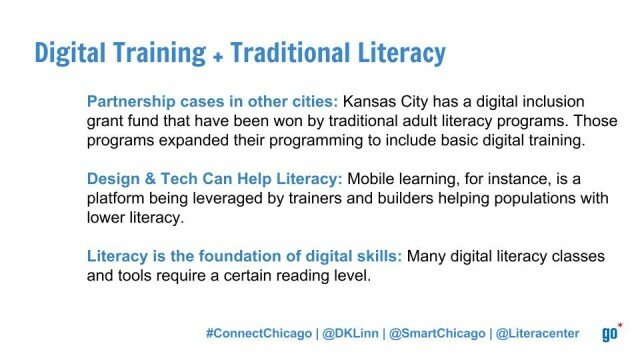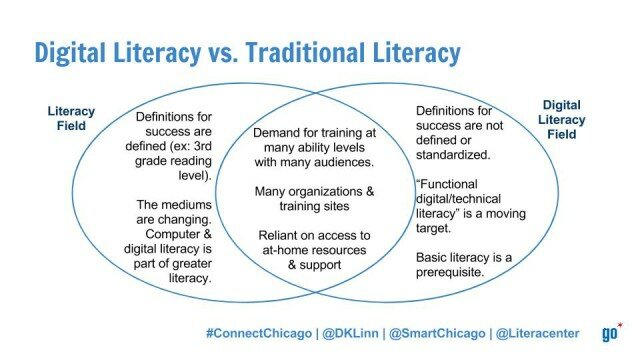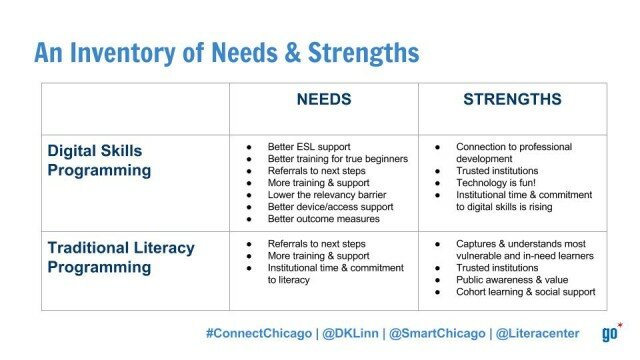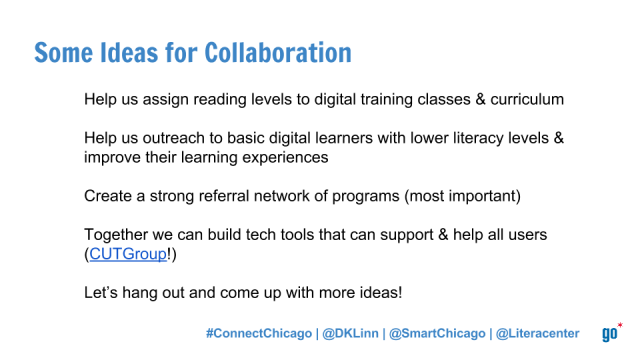Smart Chicago’s resident membership at Literacenter means that our Connect Chicago trainers and programs can collaborate with the greater literacy community in Chicago. We see great potential for these two communities to strengthen one another and create a useful cross-program referral network for residents.
On November 24th, I led a Brown Bag Lunch at Literacenter and put forth some of ideas for how literacy organizations and digital literacy organizations can amplify each other’s work. 
Why Does this Collaboration Matter?
First, basic literacy is often a prerequisite for most digital skills trainings. For instance, Smart Chicago is giving away free licenses to the youth browser-based game Taken Charge, but the game is best for students at a 3rd grade reading level or above. Second, strengthening one’s reading or writing and strengthening one’s digital skills are not always achieved separately. For instance, our friends at Hooray for Learning use technology to help teachers foster creative writing. The Chicago Citywide Literacy Coalition is undertaking a Technology Pilot Program for their adult learners, recognizing that technology literacy has a place in the greater literacy mission.
Of course, without access to devices and the Internet, gaining digital skills and literacy skills through technology is difficult. This is a challenge that Chicago’s literacy and digital literacy organizations share. In both fields, there is a reliance on the existence of at-home supplementary resources. Residents can retain knowledge and practice skills easily when they have books, devices, connections and social support in the comfort of their homes.
Frameworks for Collaboration
When we think about ways that these two fields can work together, it helped to begin by understanding how they are different and similar:

The goods news is that digital literacy/skill-building programs and more general literacy programs have complementary strengths and needs:

While digital skills programming can do more to serve and reach residents at lower reading and English language levels, that happens to the literacy community’s comfort zone. Digital skills programming can take note of literacy programs’ best practices on cohort learning and social support while learning. Both sets of programming are conducted by trusted institutions and both are in need of a strong referral network for its patrons. Where do we we send a job seeker at “X” reading level who wants to learn “X” computer skill?
Here are some preliminary ideas we can run with:

This is a start. Through more gatherings like the one last week, we can expand the list of ideas above and understand the added value that collaboration can bring to each field’s mission.
Smart Chicago’s full presentation here:
Thanks so much to representatives from Literacenter, Chicago Literacy Alliance, Literacy Works, Chicago Public Library, WTTW, Chicago Citywide Literacy Coalition, Open Books, Hooray for Learning, the Children’s Literacy Initiative, and others for coming out to the lunch and participating in this important conversation!




